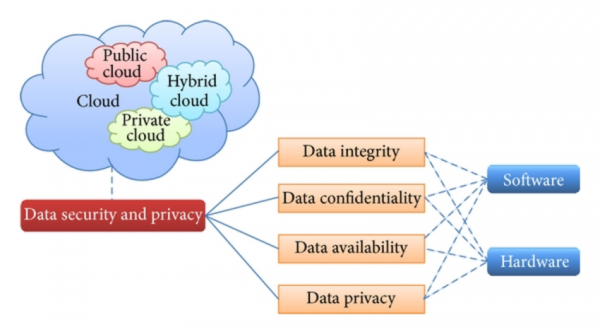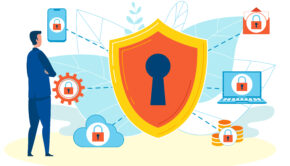3 Secrets of Managing Remote Teams of Software Developers
Introduction
We humans have turned to machines to solve our problems and make our lives a little bit easy. The widespread use of electronics in previously pure mechanical designs with powerful computers gave birth to a rather new phenomenon in human civilization. This new phenomenon is intangible code or software and on demand software development. Today tech experts, consultants, software developers and engineers in any field work hand in hand to achieve a target proficiently. The convenience of having a machine even with basic computational functionality brought in the need to precisely understand software development and teams at times remote teams of software developers who would write code or software that runs or operates all those computing devices inside any electronic appliance, device or machine.
Responsibilities of a Software Developer
A software developer is a person who is responsible for the code or software that operates any give electronic device, appliance or consumer product right from your digital watch to a super computer. Like every other aspect of social life today, internet is deeply embedded in software that we use not just for its functionality, administration or maintenance but for its development as well. Traditionally we assume software development is about nerds working in a strict facility on desktop computers under surveillance and/or watch groups controlling each and every line of code that is written. Even if it were true a couple of decades ago, it isn’t the case anymore, at least not in majority of the world. In fact, it has gotten so liberal that a remote team of software developers is involved in almost every big project today. With a variety of powerful mobile computing devices and cloud resources to choice from our software developers today can and do work remotely right from a table in a silent cafe or from their bedroom or a garden’s bench.
Writing software is a job that comes with a lot of responsibilities and when you trust a remote team of developers to work on a piece of software for a consumer product that is readily available to your kids and/or elders in the family, it makes it a lot difficult for a software developer to make it all right.
How can a remote team of software developers be trusted? Before we even bother about that, we need to first take a look into the responsibilities of a software developer in general.
What might go wrong with a calculator program or your good old paint application? True. Not much. But there are things like anti-missile system or drones in the military. Again, it is properly regulated and controlled as per the law. So, hard to find things that might go south.
Not really! Just think about the firmware in the heart implants of your relatives or self-driving cars and whatnot. Even simple tasks, like turning off the lights on high ground objects to reduce light noise in the environment but enable it again if some airplanes come close enough. You have to have basic understanding at least of processes not related to the software itself to understand the goals, needs and trouble makers around the software. For sure, you can reach the goal and make software react to output of sensors but you need to know what to do, why it happened and what would be a sane thing to do or what could have caused it and what it means to the software environment.
Now, let us bring in the remote teams of software developers that we talked about earlier. Fair thing would be not to assume a Chinese working in NSA at USA remotely. It just don’t happen, not legally or with authorization at least.
Albeit, owing to cloud technology and widespread availability of high speed internet, remote work in software development is and has been popular.
Does Remote Work Make Sense?
Your mileage might vary but remote work is practical and saves money. Even if you have a strict policy of employing people from the same city, district, or country. Because time is a valuable thing, also working conditions on site are not always perfect. After all not all the companies can afford to make workplace fun to be at like big corporations like Google for instance. Basically, wasting time doing your pause or going to/coming from work or attending a sick kid/relative at home looks dated. With remote work you still could so some work at least. However don’t forget the downsides. For example communication with your super busy boss or missed opportunities to talk with your colleagues about something random and generate new ideas isn’t impossible but not great virtually.
With remote work, there is much more. For example some of the modules of your project could be done by experts in a field overseas without having outsourced the whole software itself. Today in the times of urgency, it makes no sense at all to wait for the perfect employee after going through a painfully slow process of interviews and sophisticated selection process.
The real beauty of remote work is reflected in free and open-source projects. For example, the Linux kernel was first written by an individual but eventually this software is remotely developed till date by many other individuals and this contribution led to an unprecedented revolutionary change in the software development industry. Imagine the power of remote work that makes it possible for a guy from India and Norway could work together on a problem for a US based company.
Secrets of Managing Remote Teams
By now, it is obvious enough as to why remote work got so much attention and prestige in the software development industry. It involves a complex challenge of managing/collaborating with remote workers.
1. Trust is Paramount
There is always an issue of privacy and security. Let us first take privacy, it being a fundamental human right.
If you’re working for some company remotely or otherwise, trust is a key thing. There will be employees abusing it, always with or without detailed monitoring of what they do or how much time they spend during food breaks for example. After all, a software developer behind the screen is a human. I would say don’t indulge in spying on your remote workers like having software running which checks moving mouse, takes screenshots, counts time of work like that. It will destroy trust and won’t lead to better results. Not saying checks and balances shouldn’t exist only but privacy of remote workers has to be paramount. How can you not trust a person just because he is working remotely? By these standards, no one should ever trust any astronaut deployed in international space station ever.
2. Choose the Right Collaboration Tools
It is a challenge to manage and collaborate with remote workers even with a basic set of framework and guidelines. So, it is a must to pick the right tools in order to execute the plan properly. A strong communication tool with robust connectivity, file sharing is bare minimum. Depending on the needs of your project, there exist collaborating tools for teams viz. Mattermost, Slack, Rocket.Chat etc. It is always best to have your communication tool hosted on company server for additional privacy and security. Then comes remote assistance tool for live debugging among remote works or beta testers and developers. Teamviewer is a remote assistance software that does the job so beautifully. Any sort of access should only be granted upon thorough checks only. It is best to deploy two factor authentication. A private connection should be key. It is best not to expose your connection or network to the outside world.
3. Ensure the Security of Organization Data
Security of the data in transit and at rest is critical. A private network that virtually connects a remote workforce has to be put in place in order ensure specific access level to the private data and company resources depending on the needs of a software developer for a given project. One could easily deploy VPN software of different magnitude and schemes viz. IPsec, OpenVPN and/or Wireguard which are robust tools for the job. It covers the integrity of the data in transit, while there is still a need for setting some standards as to how the data has to be stored on remote computing devices, if any. A standard practice has to be put in place and someone has too make sure it is enforced. Not saying anything about a draconian policy but quality control requires some level of enforcement too.
4. Inculcate Team Spirit
All of the above-mentioned communication tools come with basic ingredients to organize, plan and execute tasks. So, other than a good communication tool, what else is the marrow of remote teams of software development?
There is always a conflict of ideas when you have remote workers from different part of the planet doing software development. Team spirit of remote workforce is a must. A manager has to find a fusion in order to make things work. In other words, it is still a virtual office or workplace only.






















